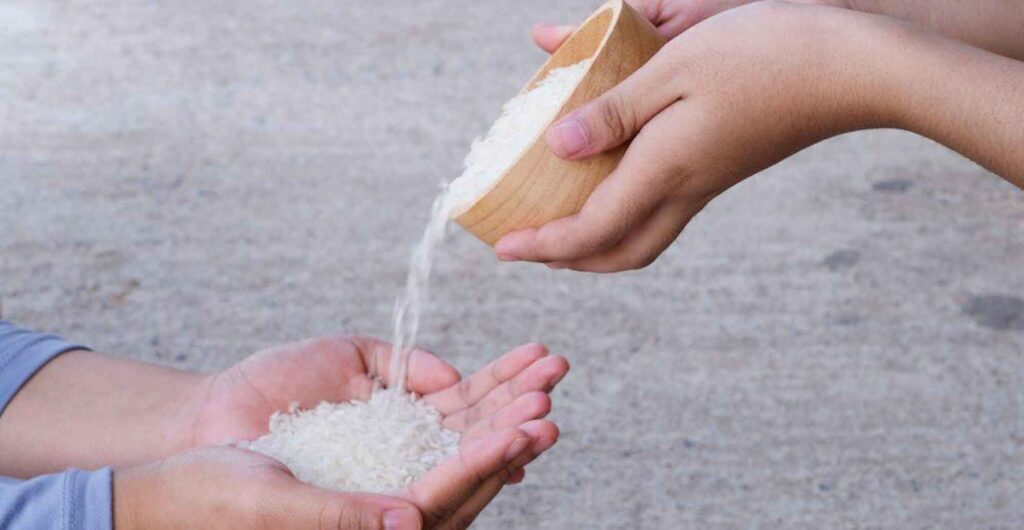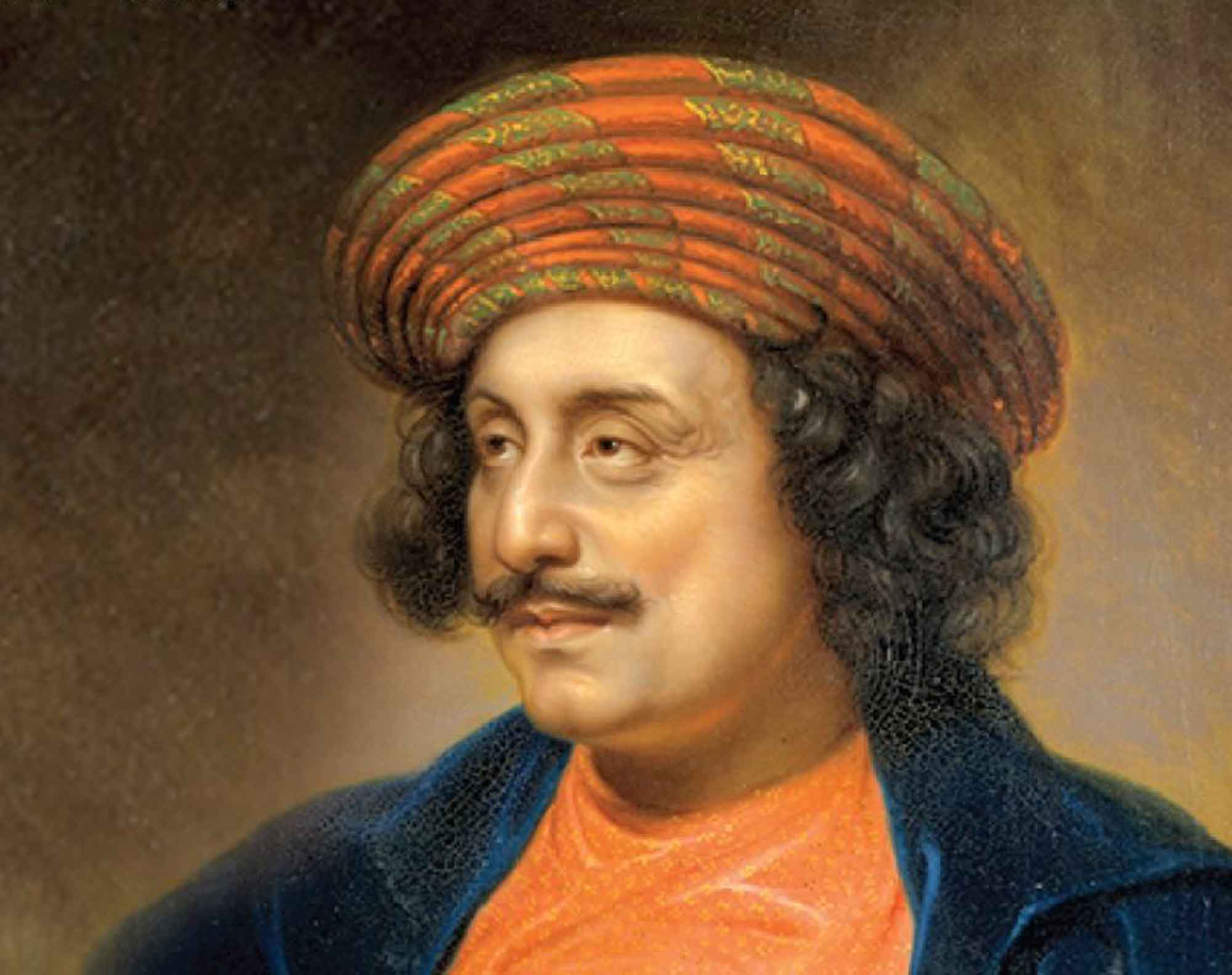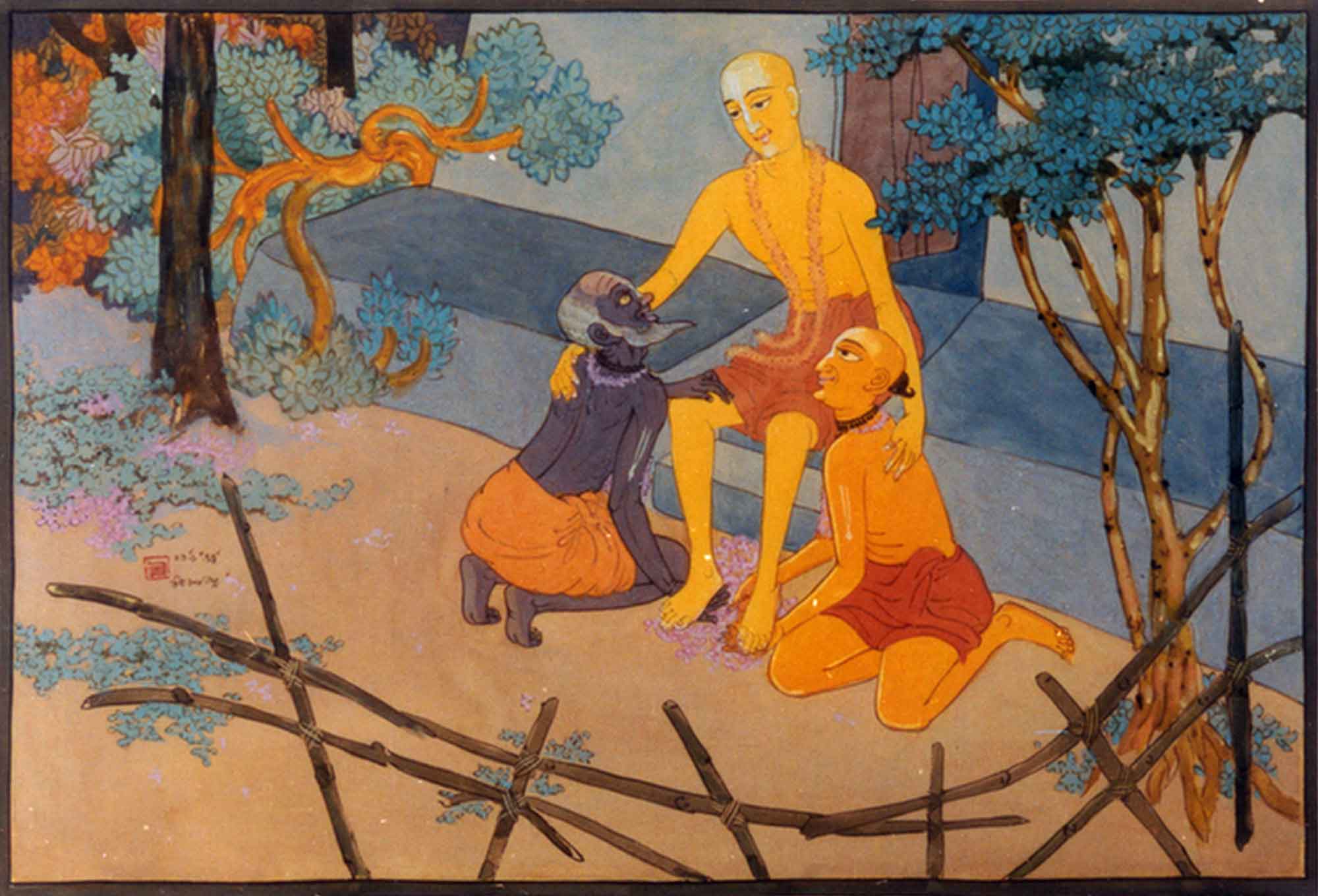Overview
'Āmiṣabhojī-digera Jñātavya (Considerations for Non-Vegetarians)' was first published in Sajjana Toṣaṇi Vol.8. issue 4 in 1896. In this short article, Bhaktivinoda Thākura gives a list of quotes from zoologists, scientists and physicians of his day, in order to make the point to his countrymen that meat eating is not natural for humans.
(translated by Swami B.V. Giri)
The zoologist Linnaeus says that both humans and monkeys that resemble humans were amongst the first stages of mammals. The shape and structure of human beings are very similar to the structure of these monkeys. These monkeys are fruitarians.
Professor Owen says that human-like animals and many quadrupeds live by eating fruits, grains and other juicy vegetable substances. Humans must undoubtedly be considered to be fruitarians because of their close resemblance to the shape and structure of monkeys.
Suvier says that judging by the structure of human beings, it can be understood that their natural food is fruits, roots and vegetables.
Professor Lawrence says that there is no resemblance between the teeth of carnivores and human teeth. Human teeth, stomachs, and physical structure are similar to those of fruitarian animals.
Rey says that humans could not have been created as carnivores.
Dr. Sir Henry Thompson said that only after the onset of delusion, eating meat is considered to be the only food that can be eaten by human beings.
Dr. Spencer Thomson says that physiologists cannot argue with those who have decided that plants are edible for humans.
Dr. Leon Playfair says eating meat is not necessary for humans.
Sir B.W. Richardson says that he sincerely hopes that by the end of the century, not only would slaughterhouses be abolished, but the practice of eating meat in the name of food would also completely end.













